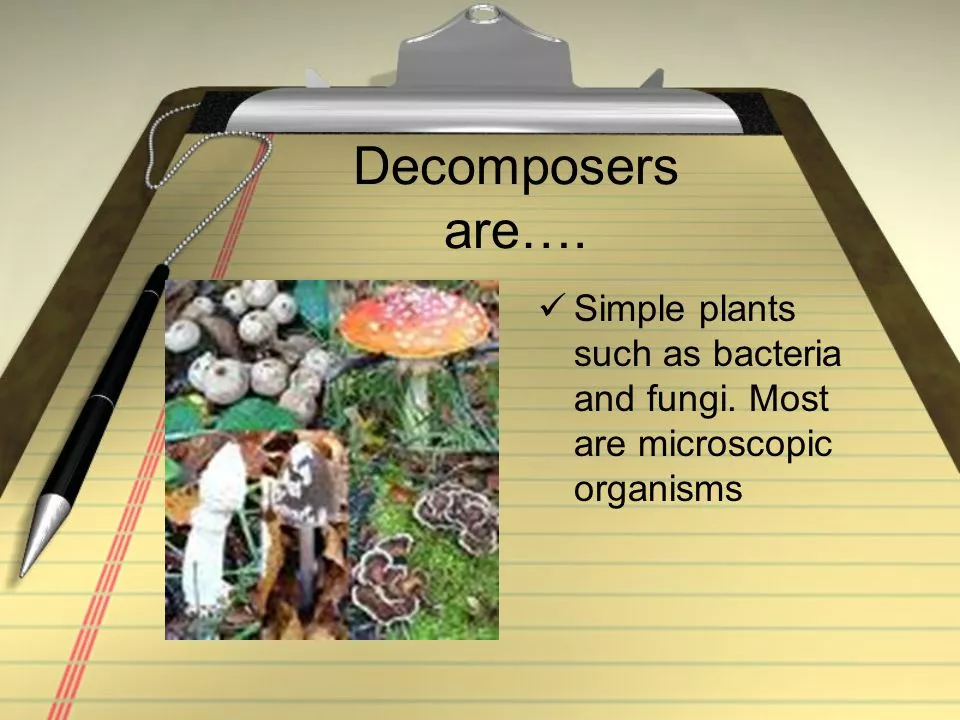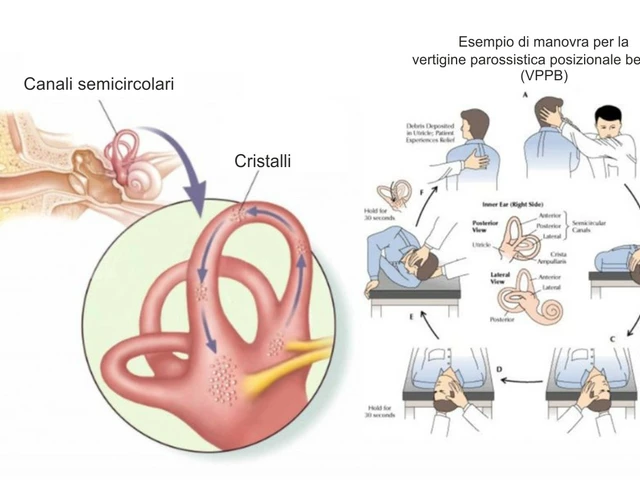
The role of fungus in the decomposition process
The Magic of Fungi in Nature's Recycling System
As we observe our surroundings, we may notice the magical role of fungi in nature's recycling system. These fascinating organisms play a crucial part in breaking down dead organic matter and converting it into vital nutrients that can be used by other living organisms. In this section, we will explore the importance of this process and how fungi contribute to the balance of our ecosystem.
Fungi are a diverse group of organisms that are neither plants nor animals, but rather belong to their own unique kingdom. They come in various shapes, sizes, and colors, and can be found in almost every corner of the Earth. From the mushrooms we eat to the molds that grow on our food, fungi are all around us and are constantly working to break down and recycle organic matter.
When a plant or animal dies, its remains are decomposed by a complex community of microorganisms, including fungi. These organisms secrete enzymes that break down the dead matter into simpler compounds, such as carbon dioxide, water, and nutrients. This process not only cleans up our environment but also provides essential nutrients for the growth and survival of other organisms.
Decomposition Squad: The Role of Saprotrophic Fungi
Saprotrophic fungi are a specific group of fungi that play a vital role in the decomposition process. These organisms feed on dead organic matter by releasing enzymes that break down complex compounds into simpler ones, which they then absorb and use as a source of energy and nutrients. In this section, we will delve deeper into the fascinating world of saprotrophic fungi and their role in the decomposition process.
There are many different types of saprotrophic fungi, and they can be found in various environments, including soil, water, and even the air. Some common examples include the fruiting bodies of mushrooms that we often see growing on logs, leaf litter, and other decaying material. These fungi release enzymes that break down cellulose, lignin, and other complex organic compounds, allowing them to access the nutrients locked within.
As saprotrophic fungi break down and consume dead organic matter, they release nutrients such as nitrogen, phosphorus, and potassium back into the environment. These nutrients are essential for the growth of plants and other organisms, making saprotrophic fungi a critical component of the nutrient cycle within ecosystems.
Forest Floor Fungi: Turning Dead Leaves into Life
One of the most important roles fungi play in the decomposition process is breaking down dead leaves and other plant material on the forest floor. This process, known as leaf litter decomposition, is crucial for maintaining the health and productivity of forest ecosystems. In this section, we will explore how fungi contribute to this vital process and the benefits it provides.
When leaves fall to the ground, they create a layer of leaf litter that provides a habitat for a diverse community of microorganisms, including fungi. These fungi release enzymes that break down the tough cellulose and lignin found in leaves, turning them into simpler compounds that can be absorbed by the fungi and other decomposers.
As fungi break down leaf litter, they release essential nutrients like nitrogen, phosphorus, and potassium back into the soil. These nutrients are then taken up by plant roots and used to support their growth and development. In this way, fungi play a critical role in maintaining the fertility of forest soils and supporting the growth of new plant life.
Wood Decay Fungi: Breaking Down Fallen Trees
Another important role fungi play in the decomposition process is breaking down fallen trees and other large pieces of dead wood. Wood decay fungi have the unique ability to decompose the tough lignin and cellulose found in wood, making them essential players in the recycling of nutrients within forest ecosystems. In this section, we will explore the fascinating world of wood decay fungi and their role in the decomposition process.
Wood decay fungi can be found in various forms, from inconspicuous crusts and molds to the more familiar mushrooms and brackets that grow on logs and stumps. These fungi release enzymes that break down the complex compounds found in wood, such as cellulose and lignin, allowing them to access the nutrients locked within.
As wood decay fungi break down dead wood, they release essential nutrients like nitrogen, phosphorus, and potassium back into the environment. These nutrients are crucial for the growth of plants and other organisms, making wood decay fungi an important component of the nutrient cycle within ecosystems.
Fungi and Soil Health: A Symbiotic Relationship
Fungi are not only important decomposers but also play a vital role in maintaining soil health. Many fungi form symbiotic relationships with plant roots, helping them to access nutrients and water while receiving sugars and other organic compounds in return. In this section, we will explore the benefits of these relationships and how they contribute to soil health and fertility.
One of the most well-known examples of a symbiotic relationship between fungi and plants is the mycorrhizal association. In this relationship, fungi colonize plant roots and extend their hyphae into the surrounding soil, effectively increasing the root's surface area and ability to access nutrients and water. In return, the plant provides the fungi with sugars and other organic compounds produced through photosynthesis.
These mycorrhizal associations are essential for the health and productivity of many ecosystems, as they help to maintain soil fertility and support plant growth. By enhancing nutrient uptake and promoting soil structure, fungi play a crucial role in sustaining the health and vitality of our soils.
Composting: Harnessing the Power of Fungi at Home
One practical way to harness the power of fungi in the decomposition process is through composting. By creating a favorable environment for fungi and other decomposers, we can turn our food scraps and yard waste into nutrient-rich compost that can be used to fertilize our gardens and landscapes. In this section, we will explore the basics of composting and how fungi contribute to this sustainable practice.
Composting involves creating a controlled environment where fungi, bacteria, and other decomposers can thrive and break down organic matter. This process typically involves layering and mixing food scraps, yard waste, and other organic materials in a compost bin or pile, providing the decomposers with a diverse range of nutrients and energy sources.
As fungi break down the organic matter in the compost pile, they release essential nutrients like nitrogen, phosphorus, and potassium, which can be used by plants to support their growth and development. By composting our food scraps and yard waste, we can harness the power of fungi to recycle nutrients and reduce our impact on the environment.
Fungi in the Carbon Cycle: A Climate Connection
Fungi play an essential role in the global carbon cycle by breaking down dead organic matter and releasing carbon dioxide back into the atmosphere. This process, known as heterotrophic respiration, is an important component of the Earth's carbon balance and has implications for our climate. In this section, we will discuss the role of fungi in the carbon cycle and their potential impact on climate change.
When fungi decompose organic matter, they release carbon dioxide as a byproduct of the metabolic process. This release of carbon dioxide contributes to the global carbon cycle, in which carbon is exchanged between the atmosphere, oceans, and terrestrial ecosystems.
While the release of carbon dioxide by fungi is a natural part of the carbon cycle, human activities such as deforestation and the burning of fossil fuels have disrupted this balance, leading to an increase in atmospheric carbon dioxide levels and global warming. By better understanding the role of fungi in the carbon cycle, we can develop strategies to mitigate the impacts of climate change and promote the health and balance of our ecosystems.
Appreciating the Role of Fungi in Decomposition
In conclusion, fungi play an essential role in the decomposition process, breaking down dead organic matter and recycling nutrients in our ecosystems. From leaf litter decomposition on the forest floor to the mycorrhizal associations that support soil health, fungi are critical players in maintaining the balance and vitality of our environment.
By appreciating and understanding the role of fungi in decomposition, we can better appreciate their importance in our ecosystems and work to protect and conserve these fascinating organisms. Whether we're composting our food scraps, taking a walk in the woods, or simply observing the mushrooms in our backyard, we can marvel at the incredible work of fungi in nature's recycling system.




Written by Jakob Fitzroy
My name is Jakob Fitzroy, and I am an expert in pharmaceuticals with a passion for writing. I have dedicated my life to studying medication and understanding how it affects various diseases. My goal is to educate people about the importance of proper drug therapy and prevention methods. I have authored numerous articles, providing valuable insights on medication, its development, and its impact on patients. My driving force is to contribute to the ongoing fight against diseases and improve the overall health and well-being of people around the world.
All posts: Jakob Fitzroy